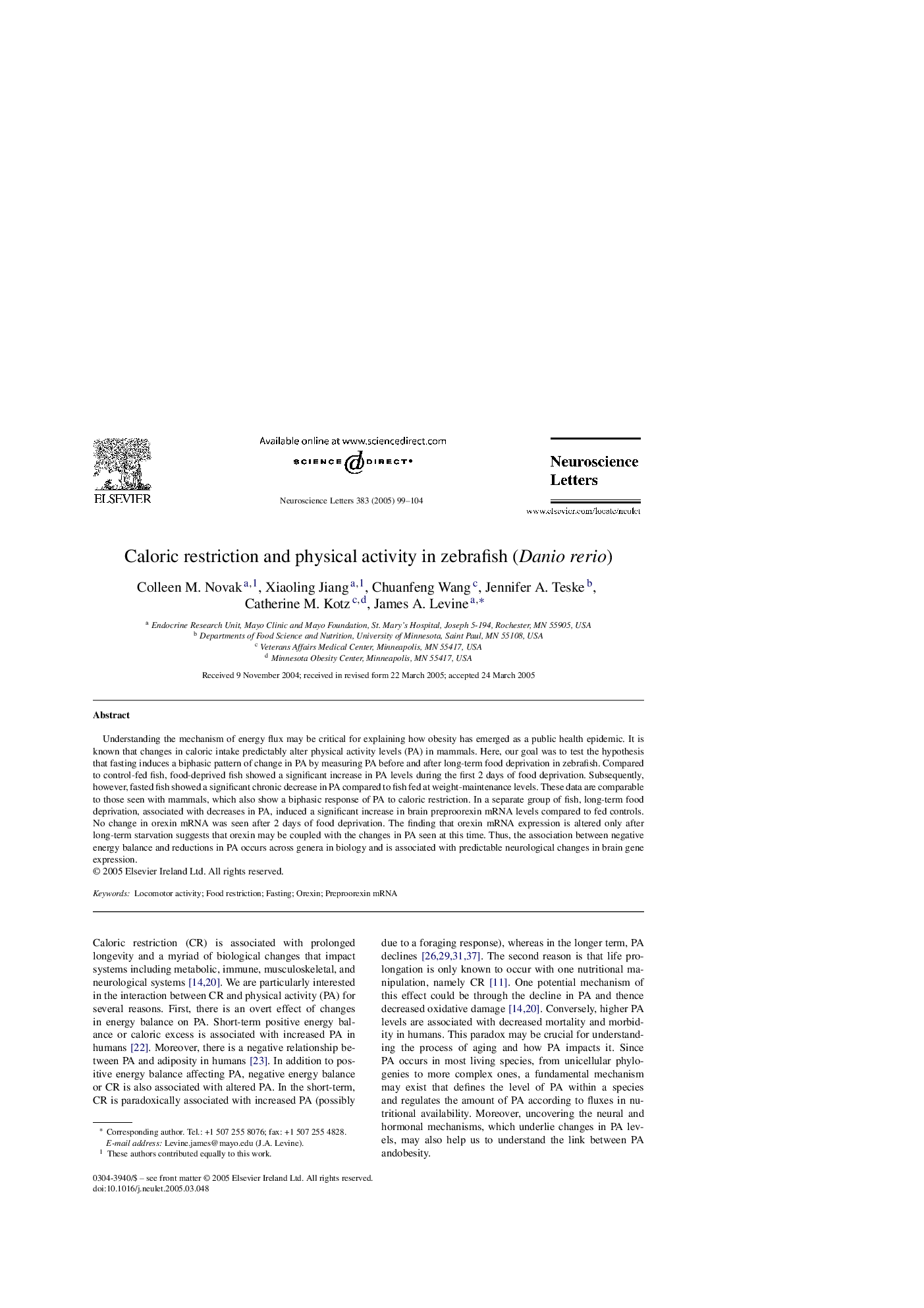| Article ID | Journal | Published Year | Pages | File Type |
|---|---|---|---|---|
| 9429202 | Neuroscience Letters | 2005 | 6 Pages |
Abstract
Understanding the mechanism of energy flux may be critical for explaining how obesity has emerged as a public health epidemic. It is known that changes in caloric intake predictably alter physical activity levels (PA) in mammals. Here, our goal was to test the hypothesis that fasting induces a biphasic pattern of change in PA by measuring PA before and after long-term food deprivation in zebrafish. Compared to control-fed fish, food-deprived fish showed a significant increase in PA levels during the first 2 days of food deprivation. Subsequently, however, fasted fish showed a significant chronic decrease in PA compared to fish fed at weight-maintenance levels. These data are comparable to those seen with mammals, which also show a biphasic response of PA to caloric restriction. In a separate group of fish, long-term food deprivation, associated with decreases in PA, induced a significant increase in brain preproorexin mRNA levels compared to fed controls. No change in orexin mRNA was seen after 2 days of food deprivation. The finding that orexin mRNA expression is altered only after long-term starvation suggests that orexin may be coupled with the changes in PA seen at this time. Thus, the association between negative energy balance and reductions in PA occurs across genera in biology and is associated with predictable neurological changes in brain gene expression.
Related Topics
Life Sciences
Neuroscience
Neuroscience (General)
Authors
Colleen M. Novak, Xiaoling Jiang, Chuanfeng Wang, Jennifer A. Teske, Catherine M. Kotz, James A. Levine,
